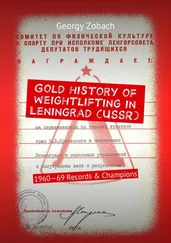Fanny Kemble - Records of a Girlhood
Здесь есть возможность читать онлайн «Fanny Kemble - Records of a Girlhood» — ознакомительный отрывок электронной книги совершенно бесплатно, а после прочтения отрывка купить полную версию. В некоторых случаях можно слушать аудио, скачать через торрент в формате fb2 и присутствует краткое содержание. Жанр: foreign_prose, foreign_antique, на английском языке. Описание произведения, (предисловие) а так же отзывы посетителей доступны на портале библиотеки ЛибКат.
- Название:Records of a Girlhood
- Автор:
- Жанр:
- Год:неизвестен
- ISBN:нет данных
- Рейтинг книги:4 / 5. Голосов: 1
-
Избранное:Добавить в избранное
- Отзывы:
-
Ваша оценка:
- 80
- 1
- 2
- 3
- 4
- 5
Records of a Girlhood: краткое содержание, описание и аннотация
Предлагаем к чтению аннотацию, описание, краткое содержание или предисловие (зависит от того, что написал сам автор книги «Records of a Girlhood»). Если вы не нашли необходимую информацию о книге — напишите в комментариях, мы постараемся отыскать её.
Records of a Girlhood — читать онлайн ознакомительный отрывок
Ниже представлен текст книги, разбитый по страницам. Система сохранения места последней прочитанной страницы, позволяет с удобством читать онлайн бесплатно книгу «Records of a Girlhood», без необходимости каждый раз заново искать на чём Вы остановились. Поставьте закладку, и сможете в любой момент перейти на страницу, на которой закончили чтение.
Интервал:
Закладка:
The literary works of hers in which I have a direct personal interest, are a charming book of essays on Shakespeare's female characters, entitled "Characteristics of Women," which she did me the honor to dedicate to me; some pages of letterpress written to accompany a series of sketches John Hayter made of me in the character of Juliet; and a notice of my sister's principal operatic performances after she came out on the stage. Mrs. Jameson at one time contemplated writing a life of my aunt Siddons, not thinking Boaden's biography of her satisfactory; in this purpose, however, she was effectually opposed by Campbell, who had undertaken the work, and, though he exhibited neither interest nor zeal in the fulfillment of his task, doggedly (in the manger) refused to relinquish it to her. Certainly, had Mrs. Jameson carried out her intention, Mrs. Siddons would have had a monument dedicated to her memory better calculated to preserve it than those which the above-named gentlemen bestowed on her. It would have been written in a spirit of far higher artistic discrimination, and with infinitely more sympathy both with the woman and with the actress.
CHAPTER VIII
Late in middle life Mrs. Jameson formed an intimate acquaintance, which at one time assumed the character of a close friendship, with Lady Byron, under the influence of whose remarkable mind and character the subjects of artistic and literary interest, which had till then absorbed Mrs. Jameson's attention and occupied her pen, gave place to others of a very different kind—those which engrossed for a time, to the exclusion of almost all others, the minds of men and women in England at the beginning of the Crimean War; when the fashion of certain forms of philanthropy set by that wonderful woman, Florence Nightingale, was making hospital nurses of idle, frivolous fine ladies, and turning into innumerable channels of newly awakened benevolence and activity—far more zealous than discreet—the love of adventure, the desire for excitement, and the desperate need of occupation, of many women who had no other qualifications for the hard and holy labors into which they flung themselves.
Mrs. Jameson felt the impulse of the time, as it reached her through Lady Byron and Miss Nightingale, and warmly embraced the wider and more enlightened aspect of women's duties beginning to be advocated with extreme enthusiasm in English society. One of the last books she published was a popular account of foreign Sisters of Mercy, their special duties, the organization of their societies, and the sphere of their operations; suggesting the formation of similar bodies of religiously charitable sisterhoods in England. She had this subject so much at heart, she told me, that she had determined to give a series of public lectures upon it, provided she found her physical power equal to the effort of making herself heard by an audience in any public room of moderate size. She tested the strength of her chest and voice by delivering one lecture to an audience assembled in the drawing-rooms of a friend; but, as she never repeated the experiment, I suppose she found the exertion too great for her.
When first I met Mrs. Jameson she was an attractive-looking young woman, with a skin of that dazzling whiteness which generally accompanies reddish hair, such as hers was; her face, which was habitually refined and spirituelle in its expression, was capable of a marvelous power of concentrated feeling, such as is seldom seen on any woman's face, and is peculiarly rare on the countenance of a fair, small, delicately featured woman, all whose personal characteristics were essentially feminine. Her figure was extremely pretty; her hands and arms might have been those of Madame de Warens.
Mrs. Jameson told me that the idea of giving public lectures had suggested itself to her in the course of her conversations with Lady Byron upon the possible careers that might be opened to women. I know Lady Byron thought a very valuable public service might be rendered by women who so undertook to advocate important truths of which they had made special study, and for the dissemination of which in this manner they might be especially gifted. She accepted in the most liberal manner the claim put forward by women to more extended spheres of usefulness, and to the adoption of careers hitherto closed to them; she was deeply interested, personally, in some who made the arduous attempt of studying and practicing medicine, and seemed generally to think that there were many directions in which women might follow paths yet unopened, of high and noble exertion, and hereafter do society and the cause of progress good service.
Lady Byron was a peculiarly reserved and quiet person, with a manner habitually deliberate and measured, a low, subdued voice, and rather diffident hesitation in expressing herself: and she certainly conveyed the impression of natural reticence and caution. But so far from ever appearing to me to justify the description often given of her, of a person of exceptionally cold, hard, measured intellect and character, she always struck me as a woman capable of profound and fervid enthusiasm, with a mind of rather a romantic and visionary order.
She surprised me extremely one evening as she was accompanying me to one of my public readings, by exclaiming, "Oh, how I envy you! What would I not give to be in your place!" As my vocation, I am sorry to say, oftener appeared to me to justify my own regret than the envy of others, I answered, "What! to read Shakespeare before some hundreds of people?" "Oh no," she said; "not to read Shakespeare to them, but to have all that mass of people under your control, subject to your influence, and receiving your impressions." She then went on to say she would give anything to lecture upon subjects which interested her deeply, and that she should like to advocate with every power she possessed. Lady Byron, like most enthusiasts, was fond of influencing others and making disciples to her own views. I made her laugh by telling her that more than once, when looking from my reading-desk over the sea of faces uplifted towards me, a sudden feeling had seized me that I must say something from myself to all those human beings whose attention I felt at that moment entirely at my command, and between whom and myself a sense of sympathy thrilled powerfully and strangely through my heart, as I looked steadfastly at them before opening my lips; but that, on wondering afterwards what I might, could, would, or should have said to them from myself, I never could think of anything but two words: "Be good!" which as a preface to the reading of one of Shakespeare's plays ("The Merry Wives of Windsor," for instance) might have startled them. Often and strongly as the temptation recurred to me, I never could think of anything better worth saying to my audience. I have some hope that sometimes in the course of the reading I said it effectually, without shocking them by a departure from my proper calling, or deserving the rebuke of "Ne sutor ultra crepidam."
In February, 1828, I fell ill of the measles, of which the following note to Miss S– is a record.
My dearest H–,
I am in a great hurry, because my parcel is not made up yet, and I expect your brother's emissary to call at every moment. I send you my play, also an album of mine, also an unfinished sketch of me, also a copy of my will. The play you must not keep, because it is my only copy; neither must you keep my album, because I want to finish one of the pieces of verse begun in it; my picture—such as it is—begun, but never finished, by Dick –, I thought you would like better than nothing. He has finished one that is a very good likeness of me, but it was done for my mother, or I should have wished you to have it. My will I made last week, while I was in bed with the measles, and want you to keep that.
Читать дальшеИнтервал:
Закладка:
Похожие книги на «Records of a Girlhood»
Представляем Вашему вниманию похожие книги на «Records of a Girlhood» списком для выбора. Мы отобрали схожую по названию и смыслу литературу в надежде предоставить читателям больше вариантов отыскать новые, интересные, ещё непрочитанные произведения.
Обсуждение, отзывы о книге «Records of a Girlhood» и просто собственные мнения читателей. Оставьте ваши комментарии, напишите, что Вы думаете о произведении, его смысле или главных героях. Укажите что конкретно понравилось, а что нет, и почему Вы так считаете.












